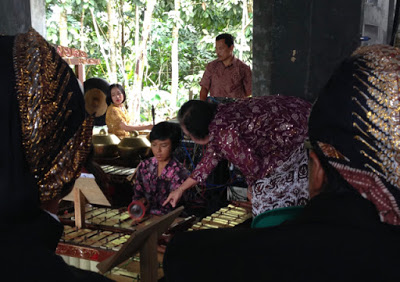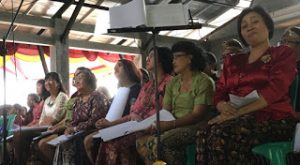episode March 2020
On that first Sunday following the coronavirus-related announcement to limit social gatherings I was supposed to sing with my choir at an Episcopal service. In less than a week all choir groups I belonged to suspended their activities indefinitely. No in-person worship, no choir. Being an introvert who “fears people, not ghosts,” as an old friend once described me, I thought I would find nothing but relief to have a break from social activities. I did find relief, but not in the way I had expected.
Often liturgy and music clash in my mind. I grew up in the Roman Catholic tradition, and though I am currently doubting and even disagreeing with many of the widely-accepted Christian tenets, there is still in me a loyalty to, or a nostalgia for the Catholic Mass. At the beginning of this school year, however, I found myself changing allegiance to a church on the basis of music, not liturgy or theology, which makes me feel promiscuous and unserious in matters of faith. In my mind a spiritual homesickness should be the main reason for participating in worship, and a strong affinity with a church’s theology should be foundational for where I choose to do so. But my action betrays a different rationale. Despite their surface similarities, I feel distant from the Episcopal practice and miss something-I-know-not-what of the Catholic Mass, yet I ignore the feeling and choose to sing with what I consider the tighter choir at the Episcopal church. I find myself prioritizing my artistic need, and using liturgy to fulfill it. I am willing to eat untransubtantiated bread at the Episcopal service in order to sing music that agrees more with my artistic sensibility. I eat this bread while just a short walk away the full transubstantiation deal is on offer at a Catholic Mass, which I have earned the right to take. Although I don’t actually understand what transubstantiation means and what it does to one, and do not find the taste of the Episcopal communion bread any different, still the calculative merchant in me questions whether I have chosen wisely. Am I singing while my sick soul is burning, too oblivious of my limited time on earth to give it the best manna?
More troublesome than my unfaithfulness to external ideologies, though, is my unfaithfulness to myself: I border on thinking that worship is tomfoolery when I don’t know whom I’m worshipping. I do not even say the Creed, because to say I believe it would be uttering a lie right in the liturgy. Yet there I am in the service, volunteering my energy in the collective effort of delivering messages I’m not sure I believe or even like, as beautifully as I can, posing as a worshipper. What business do I have participating in worship when I don’t accept the idea of Christianity as Jesus’s rescue mission for us? Liturgy happens to utilize music with care and respect, especially in this Episcopal church, and I happen to care about music, and that’s why I’m there. Not really knowing who requires my justification, I nonetheless feel like an unidentified flying object in a worship service, denominationally, religiously undeclared.
In such tumult I ushered myself to choir rehearsals and worship services, a tumult that had become so continuous that it appeared as a muffled annoying rumbling only half noticed. That Sunday morning I attended a live stream Catholic Mass at home. Watching in my shorts, relaxed and invisible, the rumbling subsided. It was poignant to see the pews empty in this popular church that would usually be full, and the Mass celebrated only by the priest with a single communion he ate by himself. Self-consciously I spoke and sang my responses to the greetings and invitations, hearing my unaccompanied voice in the room. Empty spaces suddenly emerged and called my attention from the world beyond my living room, that normally busy world with which I had had so much difficulty engaging, made even worse because I was never convinced I loved it enough to want to learn. I hate the buzz that usually fills it to the brim. But that Sunday, in the absence of other people’s audible voices and the usual mental noises of my wrestling with doubt, suddenly one specific way I had been engaging with that world stood out: singing with others. So this frightened person does, after all, know how to engage. I am able to. I even seek it out. It’s just that this understanding, this desire has not needed an articulation. Why should it? It has always already manifested in action, in my very singing with others. Plants turn toward the sun without having to discern the desire, learn where the sun is and how to turn to it. To add that the plants “know how to” turn toward the sun is redundant.
I sing in the choir because I desire to sing with others. It’s so anticlimactic, so tautological, you can argue it is hardly a revelation. But revelation has so far never been an addition of new knowledge to my daily life. It’s simply a clearing away of dross that allows me to see what’s more natively and solidly planted there. And that Sunday morning in that clearing this desire stood bare, childlike, apparently never needing to wait for me to define my religious identity and demonstrate tidy integrity of thoughts, words, and deeds, in order to sustain it. I don’t believe that music is a universal language that should make sense to everyone; it happens to speak to me and I don’t know why. Making music seems the only channel in which I thoroughly connect with others, or at least the most noticeable on account of those unusual moments of entering into rapport with them. This I have not experienced elsewhere, not even when falling in love. There were moments during singing with my previous choir, when I suddenly could not hear my own voice, no matter how loudly I sang. Instead of individual voices I heard a unified one. We were not high caliber singers, but even in a sea of mediocrity magic happens, too. Or when improvising on the guitar in a jam session with a stranger, suddenly the division between our minds seemed gone, and I could no longer tell who was sending and who was receiving messages, who was leading and who was following. Or when, after finishing our last lesson for the semester, my organ teacher and I stood there thanking, almost bowing to one another, passing credit back and forth between us in wonderment at the bond that quietly developed as we spent each Friday talking about music. We must have sensed that we, those two individuals standing in the practice room, didn’t stand as the two ends of the bridge. We were sidestepped, though not dismissed, and thus gesturing toward one another in our inability to point to who was responsible for the closeness we nonetheless witnessed. Moments of consciously failing to find where one ends and the other begins are true marriage, and it is not the glorious unification between self and other that I often imagine from reading mystical writings. It seems communication happens most authentically, and hence connection most genuinely, when two––or three––people attend to and express thoughts that do not belong to them but originate from a source unparticularized. Again, these moments are rare. Most of the times I grumblingly drag myself out of my hiding place to a choir rehearsal, practice singing in tune with others, notice nothing extraordinary, and come home unscathed and simply glad I went. Perhaps doing it will never bring me to depths, heights, or enlightenment. It may never strike me dumb with the wonder of existence. It may never heal me from depression and transform me into a new person. But there I am physically out there, no longer connecting merely mind-to-mind, heart-to-heart with dead or distant authors and performers in the safety of my fortress. I do not dare, but despite my natural reluctance––fear––music has the power to make me walk on my own two feet to mingle with other warm bodies and make myself one of them, accountable to them. Regardless of the positive emotional payoff, for this particular personality making music with others is simply healthy on a basic––cellular?––level, just like drinking water hydrates my body, and something in me knows to drink it, even when I don’t feel markedly refreshed afterwards.
As a matter of faith I did not choose, a faith that pulls my heart and moves me into action, instead of a faith that I actively work to believe and practice, music is my denomination. I seek it in worship insofar as the liturgy provides a context beyond individuality, an attitude of reverence, and plain but all-important regularity. On Pentecost the Holy Spirit came down to the apostles and enabled them to meet people from diverse cultures in their native tongues. In my case, too, there may have been a spirit deigning to lower itself to speak to my mind about life beyond the only one I saw then. Not an afterlife or an otherworldly realm, but simply a life oriented to a purpose beyond one’s personal reward, including salvation. The spirit speaks in a language my mind instinctively understands, musical delight. “I will sing and make music to the Lord,” we sang this Psalm one Sunday. The melody so beautiful the line stays with me. I sing not for the glory of the Lord, wishing to get splashes of that glory having pledged allegiance to him, for so far I refuse to accept a lord I do not know. But in singing it I get to brush shoulders with the possibility of something other than me that has absolute worth, something utterly true, that whether or not I profit from it, I can’t resist loving it and desiring to praise it. To live in a conscious state of praise is the highest form of living I can imagine at the moment. In practicing singing this Psalm with my choir in our routine Thursday evening rehearsal, I enacted my ideal aspiration in plain ordinariness, from my current state, without needing to first undergo a dramatic conversion. Religious truth may be other than aesthetic experience, but if religion has to do at all with going out of oneself without concerns of personal gain, not because one is such a saint or martyr, but because it’s the only viable way to live—-in other words, if utter love has to do with religion at all—-then the lesson would be entirely lost to me without art.
’Tis the gift to be simple, ’tis the gift to be free,
’Tis the gift to come down where we ought to be,
And when we find ourselves in the place just right,
’Twill be in the valley of love and delight.
When true simplicity is gain’d
To bow and to bend we shan’t be asham’d.
To turn, turn will be our delight,
Till by turning, turning we come ‘round right.
How groundedly true these words from the hymn “Simple Gifts” now are, a ground I cannot normally touch because I’m in the air all the time, blown around by complicated thinking. It’s a relief to no longer be at odds with myself, to recognize my tangible, worldly desire for singing with others without demanding that it has a weightier import—spiritual, existential, and moral. To recognize where I am, to realize that it is where I ought to be, and then to come down here is enough. From my actual home base I can then advance, if there is a further way forward, but without acknowledging it, I will forever merely fly into fantasies. My true mind is perhaps simpler than what my deep persona likes to think of it. After all, my mind tends to be miserable when it’s deep. To spread, not penetrate, to be able to love and delight, is just enough for now.
– Ike Harijanto



